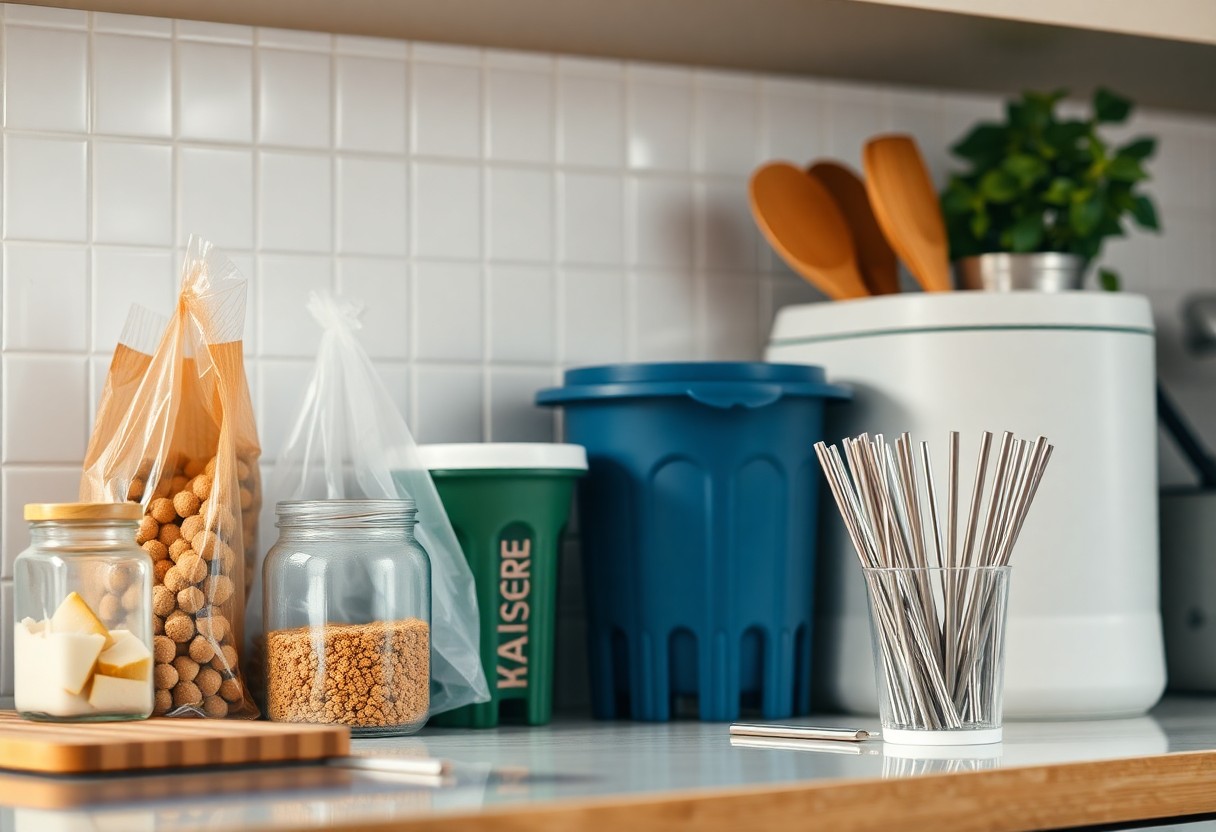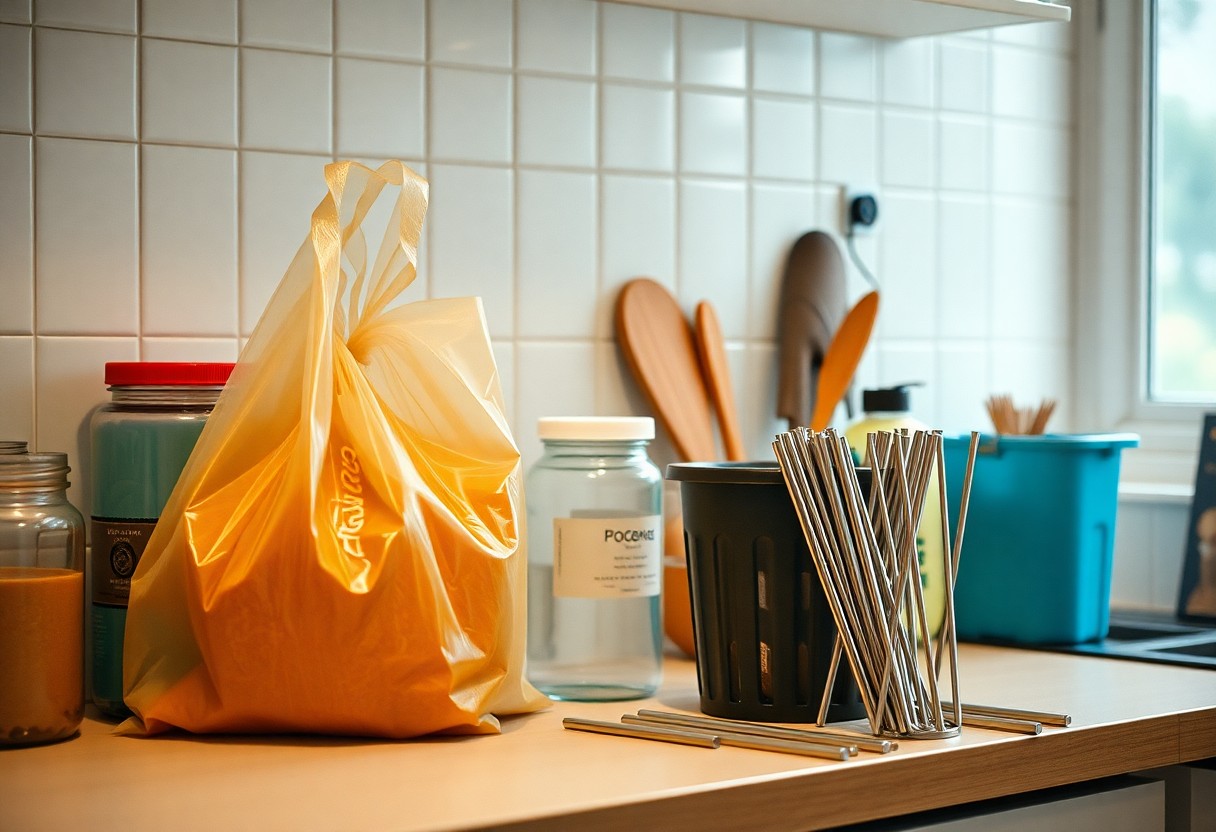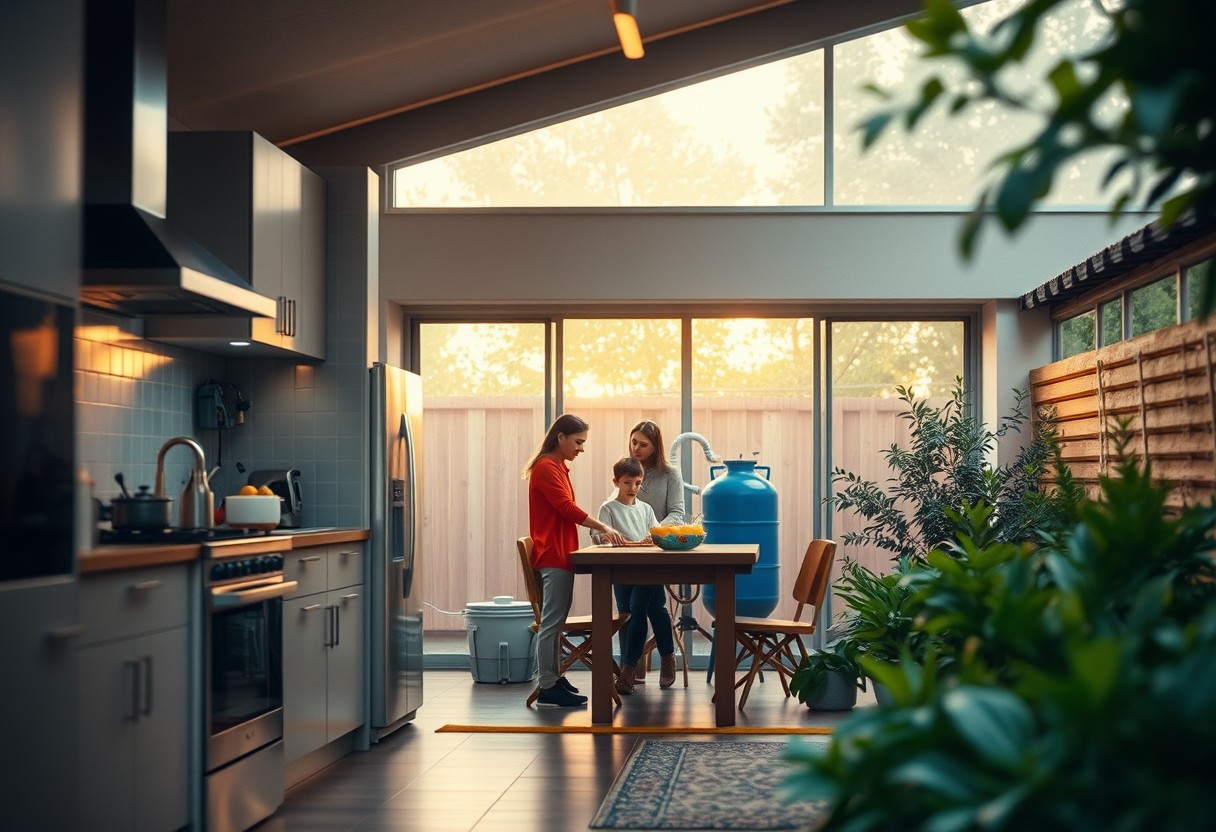There’s no doubt that reducing plastic waste at home is important for the environment, and you can make a big difference with just a few simple steps. By making informed choices, you can significantly cut down on plastic in your daily life. From swapping out single-use items to embracing reusable alternatives, every action counts. To get started on your journey toward a more sustainable lifestyle, check out this guide on how to reduce your plastic consumption!

Understanding Plastic Waste
While you may not see the full impact of plastic waste in your daily life, it quietly accumulates in landfills, oceans, and ecosystems, posing significant threats to both our environment and health. It’s important to understand what constitutes plastic waste and how everyday choices contribute to this pressing issue. By becoming aware of your plastic usage, you can take proactive steps toward reducing your footprint.
What is Plastic Waste?
Below, you’ll find that plastic waste refers to any discarded plastic products, from packaging and bottles to bags and utensils. These materials are often used once and then thrown away, contributing to the vast amounts of waste that end up in landfills and oceans.
Why it Matters
Against the backdrop of a growing environmental crisis, understanding why plastic waste matters can empower you to make better decisions. Plastic pollution can harm wildlife, disrupt ecosystems, and release harmful chemicals that affect your health and the safety of the food chain.
With a staggering amount of plastic being produced and used every day, the importance of reducing plastic waste becomes even clearer. By choosing to minimize plastic in your life, you help protect not only your immediate environment but also contribute to a healthier planet for future generations. Each small change you make can collectively lead to significant improvements in curbing plastic waste, creating a cleaner, safer world.
1. Use reusable bags for shopping and storage.
2. Choose glass or metal containers over plastic.
3. Opt for bulk purchasing to reduce packaging waste.
4. Avoid single-use plastics like straws and cutlery.
5. Buy from companies with sustainable packaging practices.
6. Start composting to minimize food waste and packaging.
Simple Steps to Reduce Plastic Use
Now, reducing plastic use at home can be easier than you think. Start by reassessing your shopping habits, opting for items with minimal packaging. You might find it helpful to explore community discussions on How do you reduce plastic waste in your daily life? and get inspired by others. Every small change contributes to a healthier planet.
Embrace Reusable Bags
The transition to reusable bags is a simple yet effective way to cut down on plastic. By carrying your own reusable bags for shopping, you avoid the need for single-use plastic bags. Plus, you can choose bags made from eco-friendly materials, enhancing your positive impact on the environment.
Opt for Bulk Buying
Buying in bulk can significantly reduce your plastic waste. By choosing larger quantities of products, you often encounter less packaging, enabling you to decrease your plastic footprint while saving money.
Even better, bulk buying allows you to purchase items like grains, cereals, and snacks in reusable containers, helping to eliminate plastic entirely from your kitchen. You can also find stores that offer bulk bins for cleaning supplies and personal care products, creating an even greater opportunity to make sustainable choices.
Recycling Right
Many people assume that all plastics are recyclable, but recycling right means more than just tossing items in the bin. It involves understanding what can actually be recycled in your area and following the guidelines of your local recycling program. By doing this, you not only keep waste out of landfills but also help companies recycle materials more effectively, ultimately reducing plastic waste.
Know Your Plastics
Right at the outset, it’s important to familiarize yourself with the different types of plastics and their recycling codes, which usually range from 1 to 7. Each type of plastic has its own properties and recyclability levels, so knowing which plastics are accepted by your local facilities helps you make better choices when purchasing products and packaging.
Local Recycling Programs
Your local recycling programs are designed to make recycling easy and efficient, but each program has its own set of rules. Familiarize yourself with what materials they accept, sorting requirements, and collection schedules to ensure you’re contributing effectively to the recycling efforts in your community.
Hence, checking your local recycling program’s website or contacting them directly can provide valuable insights. Many communities offer resources that explain what can be recycled, where drop-off centers are located, and even tips on reducing contamination in your recycling bins. By staying informed, you empower yourself to make sustainable choices that truly benefit the environment.
DIY Alternatives
Not only can you reduce plastic waste, but you can also unleash your creativity by making DIY alternatives. By crafting your own products, you can avoid plastic packaging while also personalizing items to suit your preferences and needs. Simple substitutions can make a big difference in your daily life, so let’s explore some fantastic options!
Homemade Cleaning Products
At home, you can easily create your own cleaning products using natural ingredients like vinegar, baking soda, and crucial oils. This not only cuts down on plastic bottles but also reduces the amount of harsh chemicals in your living environment. You’ll find that whipping up these homemade concoctions is both budget-friendly and effective for keeping your home sparkling clean.
Creative Upcycling Ideas
An excellent way to minimize plastic waste is through creative upcycling projects. Rather than tossing out old items, think about how you can transform them into something new and useful. With a little imagination, you can turn glass jars into storage containers, old t-shirts into reusable shopping bags, and plastic containers into planters for your garden.
Ideas for upcycling are endless and can be tailored to your own style and preferences. Look around your home for items you no longer need, such as worn-out clothes, old furniture, or empty containers. You can create art pieces, functional storage, or even unique gifts for friends and family. By breathing new life into these items, you not only reduce waste but also add a personal touch to your home while saving money!
Involving the Family
Despite the common struggle to eliminate plastic waste, involving your family can make a significant difference. By engaging your loved ones in eco-friendly practices, you create a united front in minimizing waste. Collaborative efforts can foster a sense of responsibility and awareness, making sustainability a shared goal. Together, you can brainstorm solutions and establish routines that prioritize the environment, transforming small actions into meaningful change.
Educating Kids
Along the way, it’s important to educate your kids about the impact of plastic waste. Share with them why it’s vital to reduce reliance on single-use plastics and encourage them to participate in making eco-friendly choices. You can help them understand the importance of recycling, reusing, and making small adjustments to their daily habits, making sustainability a fun learning experience.
Family Challenges
After educating your kids, consider creating family challenges that promote plastic waste reduction. Set specific goals, such as going a week without using single-use plastics or producing less than a certain amount of waste. This not only makes the process enjoyable but also allows each family member to contribute to a common goal, enhancing teamwork and commitment to sustainability.
Involving everyone in family challenges can ignite a sense of responsibility and camaraderie. Encourage creativity when brainstorming themes or initiatives, such as a ‘Plastic-Free Day’ or a competition to see who can create the least waste in a week. Celebrate the efforts of each family member, fostering motivation to continue reducing plastic usage. By making it a fun and engaging experience, you reinforce eco-friendly habits that can last a lifetime.

Community Engagement
Your involvement in community initiatives can make a significant difference in reducing plastic waste. By engaging with others who share your passion for sustainability, you not only create a network of supportive friends but also amplify your impact on the environment. Whether it’s advocating for local policies or participating in community events, your efforts can inspire those around you to take action and adopt eco-friendly practices.
Joining Local Clean-Ups
At local clean-up events, you have the chance to make a tangible difference in your community while having fun and meeting like-minded individuals. These events allow you to remove plastic waste from parks, beaches, and other public spaces, fostering a cleaner environment. Plus, by participating, you raise awareness about the plastic pollution problem and encourage others to join in.
Advocacy for Change
Around your community, being an advocate for change can lead to meaningful improvements in local policies regarding plastic use. Speaking to your local leaders about the benefits of reducing single-use plastics can lead to initiatives that protect our environment. You can also join or form groups that lobby for stronger regulations, create educational campaigns, and organize community forums to rally support. Your voice is powerful; sharing your passion for sustainable practices can motivate others to take action and think critically about their own plastic consumption.
The more you engage in advocacy, the more you can encourage changes that tackle plastic waste at its source. By attending town hall meetings, writing articles, or forming coalitions with others, you can create a collective influence aimed at reducing plastic use. You might even spark innovative solutions, like support for local businesses that prioritize sustainable practices or the development of community recycling programs. Your participation in these efforts can help create a long-term impact that benefits both your community and the planet.
Summing up
Summing up, you can make significant strides in reducing plastic waste at home by adopting simple habits. Start by using reusable bags for shopping, switching to stainless steel or glass containers, and choosing products with minimal packaging. Consider composting food scraps and opting for bulk purchases to limit plastic usage. Every small change matters, and by being mindful of your choices, you contribute to a healthier planet while embracing a more sustainable lifestyle. Together, you can make a difference!



